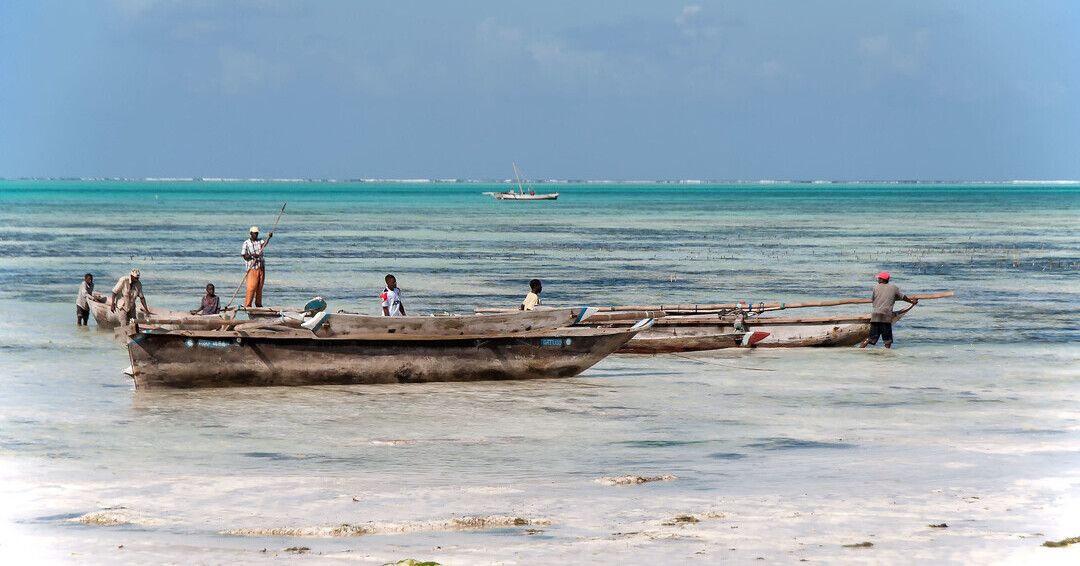Project title: Mnemba Island Marine Conservation Area: Restoring the Balance
Project lead: Dr Camilla Floros
Co-applicants: Dr. Narriman Jiddawi, Dr. Laurie Raymund, Dr. Sean Porter, Mr. Stuart Laing
Countries involved: Seychelles, South Africa, Tanzania
Takes place: Unguja, Tanzania
Supporting institutions: Wild Impact (South Africa), University of Dar es Salaam (Tanzania), South African Association for Marine Biological Research (South Africa), University of Seychelles (Seychelles)
Total budget: USD $787,721
Duration: October 2024 – September 2027
Project overview
The coral reefs around Mnemba Atoll in northern Unguja, Tanzania, are crucial for local communities, supporting artisanal fishing and eco-tourism. However, decades of overuse have severely degraded these reefs, leading to poor coral cover, reduced fish diversity, and the absence of predators. These reefs are also vital to Zanzibar’s tourism industry, attracting over 100,000 visitors annually. Despite their importance, Tanzania has historically prioritized terrestrial ecosystems over marine ones, leaving marine conservation efforts under-resourced. Recognizing this, Zanzibar’s Ministry of Blue Economy and Fisheries is collaborating with non-profit and private sector partners to address these challenges.
This project aims to restore the long-term health of the coral reefs around Mnemba Island, making them more resilient to climate change and restoring their ecological function. The approach is holistic, cost-effective, and community-led, focusing not only on reef restoration but also on reducing ongoing threats, such as tourist pressure, through sustainable resource management. The project involves:
- A team of local Community and Conservation rangers leading restoration efforts.
- Support for community-based tourism that minimizes reef degradation.
- Partnerships with government bodies, academic institutions, and local stakeholders (fishers, tourist operators, traditional leaders)
- The use of simple, scalable techniques that are affordable and effective over a 4-hectare area.
Specific Objectives
The project aims to:
- Restore degraded reefs to a healthier, more functional state.
- Reduce tourist pressure by creating additional artificial reefs.
- Develop a comprehensive understanding of the socio-economic costs and benefits of the Mnemba Island Marine Conservation Area (MIMCA) for local communities.
How the Objectives Will Be Met
- Coral fragments will be collected, nurtured in nurseries, and then transplanted onto degraded reefs.
- Monitoring protocols will be developed and implemented to track the growth, survival, and health of coral colonies.
- At least 18 new artificial reef structures will be established and monitored.
- A baseline assessment will be conducted to evaluate the socio-economic impact of the project.
- The project will engage local communities, involving them in co-creation and management efforts while enhancing their understanding of coral reef benefits.
- Capacity building initiatives will target fishers, eco-tourism operators, and schools to promote ocean literacy and stewardship.
Impact of the Project
This project is expected to increase coral cover on degraded reefs by 10% within three years, reduce tourist pressure, and enhance biodiversity and habitat quality. It will also foster local stewardship by training local rangers and promoting community involvement, ensuring long-term benefits for both the environment and the local economy.
Major Highlights
- Restoration of coral reefs over a 4-hectare area around Mnemba Island, involving local communities and stakeholders.
- Establishment of 18 artificial reefs and monitoring of 24 structures.
- Assessment of the socio-economic costs and benefits of coral reefs in the region.
- Expansion of ocean literacy programs in 14 local schools.
Photo: fisherman in Zanzibar. Credits: Rod Waddington (CC BY-SA 2.0)

